Quit Smoking
Have you decided to quit smoking? Is it time to extinguish the cigarettes for good? Great! Then you have taken the first step on a journey that can actually save your life.
Quitting smoking is the best gift you can give yourself and your loved ones. You are doing something to benefit your health and reduce the risk of suffering from cardiovascular disease. In the beginning it might almost feel impossible and it is true that it can be difficult to become smoke-free, but on the other hand the rewards are tremendous. Better health, higher quality of life and more energy are just some of the effects of quitting cigarettes.
This is how you take control – 9 quit smoking tips that actually work
1. Set a date to quit smoking.
There are advantages to be had from setting the date a bit forward in time. 📆 During the period up to the day you have decided:
Try to figure out why you want to smoke. Make a note about how you felt and why you wanted to smoke
Also try to figure out why you want to quit smoking.
This will help you once you have actually quit. It will be easier for you to avoid or take control over the situations that trigger the cigarette cravings.
2. Choose your quit smoking method
It can be difficult to just throw out cigarettes. Smoking is an addiction and the brain perceives there a need that is not satisfied. Without it you are forced to go through some abstinence. Perhaps you have a friend or relative who can be your “support” and who you can call when things seem tough.
Speak with your doctor about different methods that can support you. This can include quit smoking apps, advice, medication or even hypnosis. There are also CBT courses targeted towards smokers and behavioural therapy is a way to get help with creating working strategies for quitting smoking. In some cases a couple sessions can be enough. You must find the method that can support and help you on the day you actually decide to quit smoking.
3. Use aids to quit smoking
Once you have quit smoking the abstinence can give you a headache, affect your mood and reduce your energy level. The longing for “just one more puff” can be very strong. At these times, nicotine replacement can ease your abstinence. There are several different nicotine drugs to choose from, such as nicotine spray and nicotine pouches. Studies show that nicotine replacements improve your chances of succeeding.
4. Quit smoking together
Tell your friends, family and colleagues that you are going to try and quit smoking. This way you can receive support and encouragement from your surroundings, especially when you feel tempted to smoke. 👨🏾🤝👨🏻👩🏾🤝👩🏼
5. Avoid triggers
Alcohol can make it more difficult for you to keep the goal in sight, which is to quit smoking. Some good advice is to initially avoid or limit alcohol. Other triggers can be the cigarette you usually smoke together with a cup of coffee. One tip is to try and switch to tea for a few weeks.
If you usually smoke after meals, then find something else to distract yourself:
- Brush your teeth
- Take a walk
- Chat with a friend
- Chew something
6. Clean
Clear out everything that reminds you of smoking. Wash all of your clothes, you don’t want to see or smell something that reminds you of smoking.
7. Raise your pulse
One way of reducing cigarette cravings is keeping yourself active:
Put on your running shoes.
Go out with the dog.
Do some weeding in the garden.
Try something new. Yoga perhaps? 🤸♀️
It helps! One positive thing is the calories that you burn. This counteracts the risk of gaining weight when you quit smoking.
8. Drink water
Drink a lot of water!💧
- It’s something to do
- It can help relieve your tickly cough
- Might help you not to snack
- A lot of water together with a diet rich in fibre also helps to keep the stomach going
9. Try again
If you have a relapse, then don’t be scared. Try again. Many people go through several setbacks before they reach their smoke-free end goal. Don’t forget to satisfied with the cigarettes you didn’t smoke this time. Each attempt is positive to your health! 💪
Think about what led to your relapse, the situation and your feelings. Use the insight as a possibility to strengthen your decision to quit smoking.
Then set a new end date for when you will quit smoking, preferably within one month.
Pregnancy and breastfeeding
If you are pregnant, then you should completely avoid tobacco and nicotine. The child in your belly is affected very negatively by the mother’s tobacco use. Among others, the child risks having a lower birth weight, malformations, birth complications and even a risk of sudden infant death syndrome after the birth.
Those who are breastfeeding their children should also refrain from using tobacco and nicotine products. Nicotine is quickly absorbed by the milk and carried further to the infant. Consequently, it can affect your child.
Consult your doctor, pharmacy staff or the nurse about nicotine use in connection with pregnancy or breastfeeding.
How do I help my partner to quit?
Do you live with a smoker? As a relative, you can be subjected to passive smoking, which can have a very negative impact on you. If you partner tries to quit smoking there are many things you can do to make it easier for them:
- Be supportive but don’t preach. Point out that you would like to have a long life together and point to the practical advantages of your relative quitting, such as a calculation about the money you can save by quitting
- Help your partner to find a nicotine replacement that suits them. You can also be helpful by ensuring that they always have this available
- Offer to participate in activities and other things with your partner that take their thoughts off smoking
Which stop smoking aids are available?
You have made up your mind, you have set a date and you are totally committed to quit smoking. Great – it’s the best decision you can make for yourself and your health. Now it’s just the hard bit you must learn to handle. What’s the best way to quit once and for all, and become completely tobacco free?
Anyone who has tried will attest, it’s not easy. Withdrawal symptoms can be severe and make you sweat, suffer and lose concentration. It’s a strange feeling not to have a cigarette between your fingers. The social aspect of smoking, that has been part of your lifestyle for so long, is suddenly gone. There are no lack of challenges. 🧗♀️
Don’t despair! Smart, safe and effective help is available. You don’t have to go through this process alone. Nicotine replacement products, therapy groups, online support, mindfulness, medical expertise, exercise and smart diet options – these are all excellent support methods in your efforts to shield off the urge to smoke.
There are lots of ex-smokers in the world. There is bound to be someone you know. A friend , a parent or a colleague, perhaps? Ask them about their experience. What did they find useful? How did they fight the urge to smoke? How did they keep their motivation up? Anything that works is fine! Tap in to all the great wisdom around you!
Which stop smoking aids are available?
Phone and chat support
The impact of mental stress can be significant and draining for anyone who is quitting smoking. Preventing the body from ingesting tobacco can play tricks with one’s mind and allow disobedient emotions to pop up and create chaos. In these situations, it’s really comforting to talk to someone who listens. Someone who understands what you are going through and who can give you both support and good advice.
Quit smoking services often offer free of charge services to people who want to quit smoking or stop using snus. Many of these help lines have both telephone and chat services, allowing you to get customised support from a tobacco cessation expert with experience from the health service sector.
People who have used a quit smoking service find them highly effective. Based on results from self-assessments, about 35% of smokers become tobacco free after having used the service for 12 months.
You can also consult:
- Health care clinics
- Certain regional quit smoking services
- Health services online
- Various online discussion forums for people in the same situation
- Quit smoking groups that arrange support and therapy meetings get-togethers.
The difficulty of quitting
When Karl Olof Fagerström worked with drug addiction in the 1970s, he was surprised that so many of them told him that it was just as difficult to quit smoking as it was to quit drugs.
– I thought it sounded strange, because at that time smoking was mostly considered an ugly habit and those who had difficulty quitting were weak-willed or had a bad character, says Karl Olof and continues:
– But if you managed to break a drug addiction, you couldn’t be weak-willed, could you?
He therefore began to study the research that was available, to find out the reason why it is really so difficult to quit smoking.
A smart help on your journey to becoming smoke-free!
Help to stop
The worst withdrawal usually goes away in a few days and after two to three weeks the brain’s receptors have calmed down significantly. But it can take several years before the urge to smoke disappears completely, explains addiction expert Karl Olof Fagerström.
Karl Olof realized early on that nicotine products were one of the best ways to help people to a smoke-free life.
– Nicotine is of course dangerous, but it is not nearly as harmful as smoking. For me, it’s about “harm reduction”, damage minimization. The really harmful thing about smoking is that we inhale the smoke, explains Karl Olof.
Effective nicotine replacement therapies that help fight the urge to smoke
Tobacco cravings can make you feel sick when quitting smoking. Your body, and particularly the receptors in the brain, are used to constantly being provided with nicotine. When the nicotine supply suddenly stops, it will cause you to feel sick with a number of withdrawal symptoms occurring.
Luckily there are effective nicotine replacement therapies available.
There are a broad range of products available today that help you fight the urge to smoke and to stop you from lighting that next cigarette. The range includes:
The preferred choice of nicotine replacement therapy is different for different people. The range is that broad, that you are bound to find a product that suits your needs really well.
You can buy nicotine replacement products at pharmacies, grocery stores and also online. You must be at least 18 years of age to buy nicotine replacement products.
Try it – and find out what’s right for you. Most nicotine replacement therapies in pharmacies and supermarkets come in both small and large package sizes. Always start with the small package when you try something new. That way, you’re not wasting your money if it turns out the product you bought is not the right one for you.
Try it – and find out what’s right for you. Most nicotine replacement therapies in pharmacies and supermarkets come in both small and large package sizes. Always start with the small package when you try something new. That way, you’re not wasting your money if it turns out the product you bought is not the right one for you.
Stop smoking apps – use modern technology to quit smoking
Your smartphone can be a great support in your efforts to quit smoking. There are many apps available today that aim at helping people quit smoking.
Most apps include features such as:
- Chat
- Success log
- Reminders
- Financial aspects
Try a few of them to see which one is best for you. Some are free, others cost you money and some are free to download and use but offer in-app purchases. Some apps contain ads.
Reliable apps! There are many quit smoking apps available, and many have been developed and are operated by credited health institutions. They are often ad-free and free to use. Look for one that is evidenced based and uses proven techniques to help you becoming tobacco free. The apps provide tips, facts and inspiration and often include features that help you track your progress. They allow you to see how your financial situation improves as you progress through to become completely tobacco free.
Reliable, Swedish app! The app “Rökfri” is developed and operated by Vårdguiden 1177. It is completely in Swedish, advertising-free and you can use it completely free of charge. The app consists of two parts – a preparatory phase before smoking cessation and a phase for the period itself when you are about to quit. In Rökfri you will find tips, facts and inspiration while you can follow your progress. In the diary function, you log your feelings and thus get a good picture of the process. The app gives you and information on how your finances are improved by not smoking.
Literature and audiobooks – a source to knowledge and support
Knowledge is an important pillar in becoming tobacco free. 🤓 A lot of people feel they are better prepared to quit smoking if they have a good understanding of the mechanisms behind nicotine addiction. It can be a great help through the tough times of withdrawal symptoms and tobacco cravings.
There are many quit smoking books in the market. They are often based on scientific facts and describe techniques and self-help strategies that can be useful for people who want to stop smoking. Having said that, there are also less credible books in this genre.
Remember that we all have different preferences and needs. Therefore, make sure to:
- Do your research! What do others say about that particular book you are considering buying?
- Are the tips provided based on scientific facts, or is there a less reliable “self-help guru” behind the book?
- Is it an easy read and is the information easy to digest? When you’re trying to stop smoking, you are already under some stress. When you need inspiration to become tobacco free, the last thing you need is a badly written, incomprehensible book.’
- One thing that is great with quit smoking books is that you keep your hands busy by holding the book.
Some people prefer listening to reading, and there is a broad range of audiobooks available on this topic. Listening to someone else talking can be both calming and comforting.
The advice that applies to traditional books also applies to audiobooks: find out as much as possible about the particular book you are interested in. Are there reviews available from previous readers that can provide some insight to the quality of the book? Is the author credible and reliable? Is the book based on scientific and medical facts?
These are all questions you should consider prior to spending money and time on books in your efforts to become tobacco free.
Mindfulness and psychological aids
Concepts such as mindfulness, meditation and acupuncture have become increasingly popular in recent times. They are often applied as techniques to handle stress and anxiety, or to treat pain. Some people advocate these methods for smoking cessation. 🧘♀️
Important to remember:
- Alternative treatment methods often lack any scientific basis.
- Positive outcomes are often linked to the placebo effect.
- Conventional methods, e.g. nicotine replacement therapies, are supported by scientific facts.
Example of alternative quit smoking methods:
- Meditation
- Hypnosis
- Acupuncture
- Relaxation therapy
- Massage
- Electro stimulation therapy
There are certainly people who feel convinced these methods are useful and successful. However, studies on the different treatment methods are few, or carried out without control groups, which means they have no proven effect from a scientific perspective.
Having said that, people are different and none of the treatments above are inherently harmful. When it comes to becoming nicotine and tobacco free, it’s really only the individuals themselves who can determine what works. If you find acupuncture – or some other method – helpful in your efforts to fight the urge to smoke, then that’s a great victory – whether scientific or not!
Quit smoking without stop smoking aids – is that possible?
Of course, one can quit smoking without aids or replacement therapies – so called “cold turkey”. 🦃
It all has to do with willpower and self-control. Some people have a big dose of both, others struggle more with their tobacco cravings.
With the wide range of good, effective and safe nicotine replacement therapies available, there is no need to suffer unnecessarily. There is no prestige in quitting smoking without aids, and there is no shame in using aids to be successful. The main overarching goal is to become tobacco free, and thus enhancing one’s health and quality of life, extending one’s life and improving one’s financial situation. All options are worth trying. If they fail, simply try another alternative.
It is you who decide the pace and which method to use. To quit smoking is a big thing, a huge challenge, and for many a road lined with pitfalls. Everyone who quits smoking is a hero, no matter how you achieve it.
Stop smoking – withdrawal
Sweating, irritability, headache, stress and depression. Anyone who has ever tried to quit smoking will recognise these withdrawal symptoms. It is a tough battle, sometimes it can feel impossible to get through a single second without taking one more puff.
But remember, you can get help. Withdrawal symptoms are temporary – your good health is forever. 😍
Stop smoking and withdrawal – all you need to know
What is withdrawal?
What does withdrawal mean? When it comes to smoking, withdrawal refers to the physical and mental symptoms you feel when you stop taking the addictive substance, nicotine.
Withdrawal symptoms
When you stop smoking, using snus or other tobacco products, you may experience a wide range of withdrawal symptoms. These can be psychological or physical symptoms and can often be combined with intense nicotine cravings. You may also be extremely irritable and short-tempered. It is not unusual to feel down – depression is a known withdrawal symptom. Mood swings, including anxiety and difficulty concentrating, are also known to occur. But, they are all temporary.
Physical withdrawal symptomsmay include:
- Headache
- Sweating
- Fatigue
- Sleep disturbances
- Increased appetite
- Abdominal pain
- Digestive issues
Withdrawal symptoms can be very unpleasant and make it very difficult to maintain your motivation to stay smoke-free. But, they will pass and dealing with them will get easier after the first few days.
One day at a time – that’s how you conquer nicotine withdrawal
How long do nicotine withdrawal symptoms last? It is different for everyone. Some people may experience mostly physical withdrawal symptoms, while others will notice that withdrawal has a greater impact on their mental state (stress, anxiety). Physical symptoms typically last just a few days – it is the psychological symptoms, created by the habit itself, that can take much longer to eliminate.
Let’s take a look at what nicotine withdrawal feels like, day by day:
- You will typically notice physical withdrawal symptoms within 4 to 24 hours after your last cigarette, snus pouch or other tobacco product
- Physical withdrawal symptoms tend to be the most intense after three days without nicotine
- Over the next three or four weeks, physical symptoms gradually disappear
- Mental withdrawal symptoms are more complex and depend on what your social and behavioural triggers are
Cigarette cravings and triggers
Cravings can be intense, and your mind can play tricks on you once you put out that last cigarette. Certain environments, people and situations can easily trigger your craving for a cigarette, snus pouch or other tobacco product, even though your body has actually become accustomed to fighting off need for nicotine. 🤔
When withdrawal symptoms and triggers sneak up on you in situations like these, it can help to focus on the positive aspects of being cigarette and tobacco-free, and make sure you have products to help divert your attention, like sugar-free gum, fruits or stop smoking products readily available. It may also be useful, or even necessary, to change your routine and avoid some of these high trigger situations.
After a few days, you will most certainly notice some considerable improvements? For example, maybe your sense of taste and smell have started to become sharper? Or maybe your breathing is not as laboured?
Help with withdrawal symptoms – useful tips
Withdrawal is tough, but you are tougher. Starting the quit attempt is the hardest part. With a number of good strategies and advice, you can come out on the other side feeling happier, healthier and more energetic.
- Make a list of the reasons you are quitting smoking. Write them down and keep them with you. 📝
When the cravings are the strongest, you can focus on why you want to quit. Maybe you are doing it for your health. You certainly may have your own, deeply personal motives for wanting to be smoke and tobacco-free. Keep the list with you and read it when the cravings are the worst.
- Reward yourself. 🥳
Do not wait until you have accomplished your final goal to celebrate. Have you made it through an hour without a cigarette? Great! Have you made it through a week? Brilliant! Every little step is a victory and worth celebrating. YOU are worth celebrating. It doesn’t have to be something expensive or complicated. Find something that lifts your spirits. A walk in the woods, a delicious dinner (that will now taste better) or a warm bath can all be nice rewards when you manage to conquer those day-to-day cravings.
- Be sure to surround yourself with supportive people. 👭
Getting support from the important people in your life is vital for getting through this. Friends and family can be a great support.It is also good to be able to lean on someone who has gone through exactly what you are going through. Do you know an ex-smoker? Reach out to them and have a chat when you need to – they know exactly how you feel.

More news
Passive smoking – a health and environmental problem
Smoking doesn’t only affect the smoker. Even relatives and persons in the smoker’s surroundings can be negatively impacted – even though they never take a puff themselves. Quitting smoking can be positive for more people than just yourself. Your family and your friends will also benefit from you putting out your cigarettes for good.
Everything you need to know about passive smoking
What does passive smoking entail?
Passive smoking means that you do not smoke yourself, but that you are subjected to tobacco smoke from persons in your surroundings. In this way you also suffer from all the harmful effects of smoking.
Being subjected to environmental tobacco smoke, as it is sometimes called, during long period is just as great a health risk as traditional smoking. Five to ten cases of lung cancer per year can be linked to passive smoking and approximately 400 cases of cardiovascular disease.
How can passive smoking cause problems with my health?
Inhaling second hand smoke is, in principle, the same thing as smoking yourself. Those who are passive smokers can inhale just as much of the harmful substances and toxins that are found in tobacco smoke as the smoker receives. If you are also sensitive to smoke, then it can also feel uncomfortable and irritating. Naturally, it doesn’t smell good either. The smell also gets stuck in the non-smoker’s clothing and hair, just as easily as it does in the smoker’s.
Common symptoms or problems that can occur are:
- irritated eyes
- cough
- stinging sensation in the throat
- headache
- shortness of breath
The amount of smoke and how long you are subjected to it is directly decisive to how many negative effects a person risks to their health. The following risks are present when a person is in the vicinity of a smoker:
- Exposure to tobacco smoke during a long time can lead to a greater risk of lung cancer of 20 percent
- The risk of having a heart attack increases by 30 percent
- For persons with heart disease, passive smoking can increase the risk of angina pectoris
- Asthma and allergies can be worsened by tobacco smoke, just as the risk of chronic respiratory illness is increased
Do you smoke but want to minimise the health risks to your surroundings and your family? Remember to:
- Always try to smoke at a sufficient distance from others, especially children
- Try to change your clothes after you have smoked, fabric that has been smoked in carries the harmful substances from the smoke along with it
- Try replacing the cigarette with a smoke-free nicotine drug, such as lozenges, nicotine pouches or nicotine spray. These will take the edge off your cigarette cravings and have a major advantage that they don’t bother anyone else.
Passive smoking and children
Children and tobacco are understandably a bad combination and small children are particularly sensitive to passive smoking. Children who grow up in an environment with tobacco smoke often suffer more with respiratory infections and ear infections than children who live in smoke-free homes. This is because their lungs quite simply function more poorly with mucous membranes and airways that are more receptive to infections.
Are you a new parent? Remember that passive smoking in the home increases the risk of sudden infant death syndrome. Keeping the home environment free from tobacco smoke is the safest and healthiest alternative. 🚭
Quitting cigarettes as a parent is a major gift, not just to yourself, but also to your children and your partner. The family has a greater chance of staying healthy and may potentially spend more time together.
Passive smoking during pregnancy and breastfeeding
If you are pregnant, then it is recommended you avoid smoky environments as much as possible. The smoke the mother breathes in affects the foetus in the mother’s stomach in a very negative way. Among others, it is more likely that the child will suffer from allergies or asthma.
Unfortunately, the list of risks is even longer. Studies show that passive smoking during pregnancy can lead to the child’s motoric ability and attention being considerably worsened. A child whose mother is subjected to passive smoking is more likely to be dependent on tobacco during their teenage years.
How does passive smoking affect my dog and other pets?
It isn’t just people’s health that is in the danger zone when it comes to tobacco smoke. Even our four-legged friends feel bad when their owners smoke. For example, a study from the University of Glasgow shows that the risk of pets suffering from cancer increases in a smoking household.
Cats, in particular, run a big risk. 😿 Researchers’ hypothesis is that large amounts of harmful substances become stuck in their fur and they ingest the toxins when they bathe themselves.
You must also remember that our pets have very sensitive small noses. Many of us humans find the smell of tobacco smoke very difficult. It can reasonably be assumed that a dog with a far more developed sense of smell will suffer even more than we do.
More news
Weight gain and quitting smoking
Motivation, energy and a positive attitude are the keys to success when quitting smoking. Of course, it can be tough to stay positive if you gain weight after quitting. It certainly feels unfair. You go and do something good for yourself – stop smoking – then you look down at the scale and get an unpleasant surprise.
Everything about gaining weight when quitting smoking
Weight gain is common when you stop smoking
If you happen to gain weight when you stop smoking, you are not alone. It is one of the most common ‘negative’ effects of quitting: ex-smokers usually put on two to four kilos the first month after they quit.
It is perfectly normal to question your choice to stop smoking when your body changes in a way you are not happy with. But keeping up your motivation is essential for fighting nicotine cravings. Here are some valuable tips that can help keep you stay motivated. 👌
Weight gain and motivation
Weight gain is a common but completely manageable side effect on the journey to becoming smoke-free. Developing a good strategy that includes diet, exercise and a healthier lifestyle makes it easier to keep the cigarette and food cravings under control.
Follow the link below for a list of the side effects and consequences of smoking >
Why do you gain weight when you stop smoking?
There are a number of reasons people gain weight when they quit smoking.
Nicotine affects your body’s ability to burn calories by unnaturally increasing your metabolism. In fact, nicotine increases the number of calories you burn at rest – from 7% to 15%. Without nicotine, the body returns to a regular metabolism and burns fewer calories.
Increased appetite after quitting smoking
Nicotine also has another effect that impacts your weight – it is an appetite suppressant. Smoking can simply make you feel less hungry. By breaking the cigarette habit, the body starts sending stronger hunger signals, and the hungrier you feel, the more likely you are to eat. Plain and simple. 😊
The psychology that goes along with smoking is also important to consider. The habit of holding a cigarette in your hand and inhaling can be as hard to break as the physical urge for nicotine. That’s why it is common that people keep their hands and mouths busy by eating in place of smoking.
Quit smoking without gaining weight
Is it possible to quit smoking without gaining weight? Yes! By adopting a few smart strategies to stay active and watching what you eat, it is completely possible to keep your waistline under control. 🏖
How to ease cigarette cravings
This may be easier said than done, but it is a good idea to make a meal plan. When you eat regularly, you have a greater chance of avoiding sugar cravings. If you have healthy, satisfying and tasty food to look forward to, it is easier to resist those sudden sugar cravings. There may also be landmines hidden at home in the pantry, so do a clean sweep and clear out those crisps, chocolates and cookies. Sugar cravings are just like nicotine cravings – they pass quickly.
- Plan out your meals
- Keep your blood sugar steady to avoid cravings
- Go for tasty, satisfying food that is low in calories
- Purge your cabinets of sweets and sugary foods and replace them with fruits that are naturally sweet
Think green!
Of course, eating healthy is very important. But then the question arises: what are good food choices when you are trying to quit smoking? Think green! Make a shopping list, and make sure the list is full of fruits and vegetables and other low-calorie foods. This improves your chances of sticking to a balanced diet. 🥗
Good snack ideas
At the same time, your dietary choices shouldn’t be something that adds to your stress. The important thing is to eat well, not to stop eating entirely. Try snacks that are lower in artificial sugar.
Good snack options that will help you get through the day include:
- Apple slices
- Baby carrots 🥕
- Unsalted nuts
Sometimes it is the feeling of not having something in your mouth that gets to you. So instead of reaching for a cigarette, try:
- Vegetable sticks
- Chewing gum (sugar-free)
- Mints (sugar-free)
The absolute best thing you can do might be to drink plenty of water. A glass or two helps fight off feelings of hunger and sugar cravings. A good fluid balance simply helps you feel better.
Quit smoking and lose weight too with an active lifestyle
Have you recently quit smoking, snus or other tobacco products and noticed some weight gain? Relax, there are plenty of ways to get back down to your ideal weight.
The right diet is important, but physical activity is also effective for keeping your weight in check. You can come a long way with regular, everyday activitiy:
- Take the stairs instead of the lift
- Cycle to work
- Take a walk at lunch
- Play with your kids or pets
If you can find an exercise activity that you enjoy, it is more likely to become a natural part of your arsenal to burn up those extra calories. As a nice little bonus, exercise is a great way to help you shake off those sugar cravings quickly.
More news
Quit smoking – Benefits to you and your surroundings
Are you thinking about quitting or cutting back on your smoking? Here we list several positive things that can boost your motivation. You can also find tips that will help you along the way.
Remember that it’s never too late to quit smoking. Don’t forget each sub-goal, every cigarette you choose not to smoke is a victory! The body’s ability to heal is so much faster than perhaps you might know. Once you have decided to quit you can look forward to many positive effects.
11 Fantastic advantages with quitting smoking
1. Sharper sense of smell and taste
Tobacco dampens the ability to sense smells and flavours. After just a few smoke-free days you will rediscover numerous taste sensations. Food and drink will taste better! You might even discover that something you thought tasted quite boring now becomes a new favourite. 🥗
Tip: When you have been smoke-free for 48 hours, treat yourself to a very good meal. Perhaps you should try out a restaurant you have been curious about for a long time, or try flavourful food again with your new sense of taste. You will be astonished!
2. A hotter sex life
One major advantage with quitting smoking that many appreciate is that their sex life become better. This applies to both men and women, particularly if you are slightly older. Smoking has been proven to have a negative effect on both sexual drive and pleasure. If you are thinking about having children then smoking is a bad combination. Smoking negatively affects both the male and female reproductive organs, which can make it more difficult to become pregnant and can later affect the baby’s health.
Tip: Be honest with yourself and see how it feels when you refrain from smoking.
3. The skin feels better
Tobacco has numerous unhealthy substances that contaminate the skin and give it a matte, slightly greyish tone. When you smoke the skin’s production of collagen decreases. This makes your skin become less elastic. Once you quit smoking you will notice how the skin becomes more supple and has a nicer glow. 💎
Tip: Help your skin recover. Clean, exfoliate and massage. Use face masks, creams and serum. Visible results when you look in the mirror can support you in your decision to quit.
4. Fresher mouth
Smoking is tough on the mouth, the teeth and the gum.
When cigarettes are out of the picture your breath will be fresher and it will be easier to take care of discoloured teeth. When you smoke, it is easy to miss inflammation in the gums. The blood circulation is worse for smokers, which can cause the gums to look better than they actually are.
When you quit smoking the gums may feel sensitive and even bleed when you brush your teeth. This is a sign that your dental health has not been taken care of previously.
Tip: Brush your teeth often.. Use dental floss. Use toothpaste that gently removes stains without bleaching the teeth. Book a time with the dentist and fix your teeth. A new smile may also help you to stay motivated. 😁
5. The blood circulation is improved
Your blood circulation improves! Sometimes this can already be noticed just 2 weeks after you have given up smoking. When the blood can transport oxygen more effectively through the body, you will be able to recover more quickly from exercise, healing or operations.
Tip: Begin exercising or get moving when you quit smoking so that you get started with a new daily routine. 🚴♀️ It is important to create new habits that do not include smoking. Start small and increase over time. Exercise helps your blood circulation, but above all your physical and mental strength!
6. Blood pressure goes down
Smoking can increase the blood pressure and increase your pulse. One major advantage with quitting smoking is that the blood pressure goes down to a more normal level. Blood pressure is a bit tricky and there isn’t one truth that suits everyone. But a lower blood pressure is regarded as reducing the risk of diseases such as stroke, heart attack and heart failure.
Tip: There are several simple ways to naturally lower the blood pressure. Slow, deep breaths reduce the stress in the body, try yoga or medication, or set aside time for calm activities, such as reading a book. 📖
7. Snore less
Smoking causes the mucous membranes to swell, thus contributing to snoring. This can affect how well you or those around you sleep. Poor sleep quality entails both mental and physical risks.
Tip: If your snoring affects someone in your presence, check with them whether any change has occurred after you stopped smoking. If they sleep better because you no longer snore, then this can be a strong motivator to continue quitting smoking.
8. The immune system is strengthened
When you choose not to smoke cigarettes your immune system is also strengthened. Then it becomes easier for the body to resist colds and other diseases.
Tip: Take the opportunity to strengthen your immune defence further by eating foods rick in vitamin C, rich in vitamin E, such as nuts and whole grains, foods rich in zinc, such as turkey and crab, foods rich in selenium, such as chicken, eggs and tuna. 🥗
9. The lung capacity increases
One important quit smoking advantage is that breathing feels easier. You will already feel how your lung capacity improves after a couple weeks. This means that you will find it easier to move and participate in physical activities in a way that you might have avoided before.
Tip: Breathe with deep relaxed breaths. As your lungs recover you will begin to notice the difference. When you notice improvements there are no obstacles to increasing your physical activities.
10. Cough less
When you quit smoking you may cough a lot in the beginning. This type of cough is actually a very good sign that your lungs are on their way to recovering. You can be calm, it won’t last very long. 😊
Tip: Warm water can relieve irritation in the throat that can occur because of the cough.
11. Less risk of cancer
The risk of suffering from cancer decreases after you quit smoking, no matter whether you quit smoking earlier or later. One cigarette produces thousands of different substances, many with severely harmful effects on your body. It isn’t just you who risks getting cancer, the risk also increases for those around you who breathe in the smoke.
Tip: It is difficult to quit smoking, but there are huge benefits from doing so. By quitting smoking you protect the people around you. You inhale one fourth of the smoke. The rest goes out into your surroundings and turns others into passive smokers. Seek out support from friends and family, everyone benefits when the smoking stops. 👨👩👧👦
How many people want to quit smoking?
According to the Public Health Agency of Sweden, approximately 7 percent of the Swedish population between 16-84 years of age smokes every day. The percentage of smokers has decreased in recent years. It is difficult to estimate how many have tried to quit or want to quit.
Are there any advantages to smoking?
The short answer is no. The smoke from cigarettes contains many toxic substances that can seriously harm a person’s health.
What advantages are there with quitting smoking?
There are many advantages associated with quitting smoking. Not smoking is likely one of the best things that you as a smoker can do for your health.
- Blood pressure and pulse return to a normal level
- The risk of a heart attack decreases
- The risk of cancer decreases
- The risk of blood clots decreases
- Your sex life can improve
- Oral health becomes better
- You protect your surroundings
- The skin improves
- Sharper sense of smell and taste
Why do people start smoking? | Why do people start smoking?
There are many answers to the question. Often people start smoking at a young age and want to feel like adults. It can be about searching for one’s identity. The question why people continue to smoke despite it being dangerous is because cigarettes are highly addictive.
Why is smoking dangerous?
You inhale numerous toxic substances that can severely harm your health. In the same way, you risk harming your surroundings through passive smoking. Smoking entails:
- Increased blood pressure and higher pulse
- Increased risk of a heart attack
- Increased risk of cancer
- Increased risk of blood clots
- Poorer sex life
- It can be more difficult to become pregnant
- Oral health becomes worse
- Subject surroundings to passive smoking
- Smoker’s cough
- The skin is worsened
- Poorer sense of smell and taste
More news
What happens after you quit smoking?
Have you decided to quit smoking? Congratulations! The process of becoming smoke-free is difficult and some symptoms may feel quite horrible, but stay strong! It will pass. Once you have had your last cigarette many positive things start happening in your body. 😊
It is common to experience difficult side effects when you try to quit smoking. But, it is just your body, which is now working hard to heal itself and make the transition to a smoke-free daily life. You may dizziness, headache, as well as pins and needles in the hands and feet. A cough and sore throat are not uncommon. The stomach may make things difficult for you with both nausea and constipation.
But it will quickly pass and there are things you can do to help ease the problems. Here you can read more about what happens after you quit smoking and how to handle the setbacks.
10 common things that can happen in the body after you quit smoking
1. Increased appetite and lower metabolism
When you quit smoking cigarettes your metabolism can decrease, which means that calories are burned more slowly. This can lead to you gaining weight. Perhaps this feels a bit unfair when you are fighting to do something good for you body.
If you begin weighing up the health benefits against a possible weight gain, you should try instead to think about what you are gaining by cutting back or completely choosing to quit smoking. For example, you reduce the risk of suffering a heart attack or having lung cancer when you quit smoking and that is truly something that’s worth fighting for! To maintain your weight when you quit smoking you can choose to eat a bit less and more slowly. It is also good to drink a glass of water before eating and ensure you get regular daily exercise.
2. The skin will feel better
Smoking isn’t good for our skin and when you choose to quit you skin is guaranteed to become better.
Some find that they get spots when they choose to stop smoking, but the fact is that bad skin isn’t caused by you quitting smoking. On the contrary, smoking can worsen acne and other skin conditions because you reduce the oxygen supply to the skin. Thus causing your skin to become dryer and feel worse.
Tip! It’s a good idea to look at which products you used during the time you smoked. Your skin might feel better if you change your skincare routine.
3. Cough and sore throat
When you quit smoking your damaged cilia begin recovering. It can cause a tickle in the throat and it may also feel irritated. You can have a cough and the mucous you cough up can be discoloured. But don’t let that scare you! It is your lungs that are clearing themselves and the discomfort will disappear. 😉
4. Constipation and nausea
One thing that can happen after you quit smoking is that feelings of nausea can occur. If you have previously got your stomach going by smoking, then the nausea may be due to constipation. Once you get your stomach going the nausea will subside.
An old and well-tested home remedy that usually helps is eating prunes or plums. This can work wonders! Try placing linseed in water and then mix the linseed with mashed prunes.
If you also try to exercise a bit more than usual, then your stomach will get going faster. Food that’s rich in fibre, fruits and vegetables will help to keep your stomach going. Also drink a lot of water! 💧
5. You will experience cigarette cravings
Your body has gotten used to a certain amount of nicotine, so when you quit adding nicotine to the body it isn’t unusual if you suffer from abstinence. The strong cigarette cravings are a common symptom that normally lasts for 20-30 seconds, seconds that can feel like an eternity. Try setting the timer in your mobile phone for 30 seconds and do something else until the timer goes off.
To distract yourself from cigarette craving you can try taking a walk, listening to a favourite song, pour and drink a glass of water. You will be guaranteed to find something that helps you think about other things.
6. Temporary headache
When you quit smoking, you can get a so-called quit smoking headache. It will come and go for a while after you have quit, but fortunately the headache won’t last a very long time. It will decrease over time and it will ultimately disappear. During the time there are different ways to ease the pain. Try and see what works best for you:
- It is said that ginger and strong spices can help
- Massage, yoga and stretching can help the muscles to relax
- Cold is another tip, an ice cube against the temple or a cold towel that you place against the neck can quickly ease the pain 🧊
7. You may experience feelings of depression and anxiety
A strong cigarette craving can lead to depression. One reason for this is that you feel a lack of the happiness hormone dopamine.
When you mood dips you can try eating pineapple, salmon or chickpeas. 🍍 They can help the body to produce dopamine. Tomatoes, pumpkin seeds and oatmeal are other small bearers of happiness that can help you when things feel tough.
8. You may experience problems sleeping
A common symptom that can affect your body when you quit smoking is difficulty sleeping. You can also be extra tired for a period after you have quit smoking. But don’t forget that it is just temporary! After a few weeks the problem will disappear and you will likely sleep much better than when you smoked.
Studies have shown that smokers sleep worse than non-smokers. If you have problems sleeping during time when you quit cigarettes, then you can do the following:
sleeping during time when you quit cigarettes, then you can do the following:
- Have a look at your bedroom
- Perhaps you should treat yourself to a very comfortable new bed.
- Set the temperature in the bedroom to between 16-18 degrees
Take a walk outdoors at lunchtime. Daylight means that you will sleep easier when it is dark at night.
9. Dizziness
Dizziness is uncomfortable, but fortunately it is usually completely harmless. When you feel dizzy it is because the blood vessel has received an increased blood flow, as the same time as the blood pressure and pulse drop.
Don’t be worried! You can ease the problems with dizziness and reduce the risk of nausea by drinking water and getting exercise.
How long will you experience side effects after you quit smoking?
Physically speaking the need for nicotine has decreased in the body after two weeks. Then the effects and side effects associated with quitting smoking will also disappear.
More news
Side effects of smoking – the list you need to read
Are you looking for motivation to quit smoking? We have compiled a list here of the effects of smoking. How smoking affects your body, the side effects of smoking and the increased risk for certain diseases.
When you read through the list of things your body has to deal with, you may think, “There is no end to the misery”.
Though the idea of quitting may be daunting, the simple answer is: if you are thinking about cutting back, you have already taken the first step – the most difficult step.
It is never too late to stop smoking! Your body has an incredible ability to heal itself! Every cigarette you don’t smoke is a victory. 🏆
From head to toe – common questions about the effects of smoking
Different forms of smoking addiction:
- Chemical – nicotine is an addictive substance, and the body experiences withdrawal symptoms when it no longer gets the nicotine it is used to receiving.
- Psychological – the feeling that something is ‘missing’ when you are not smoking. Smoking can become part of your self-identity.
- Social – certain situations become associated with smoking, such as social gatherings or coffee breaks.
- Habit – something you grab with your first cup of coffee, after a mealyou’re your car or when the phone rings.
How does smoking affect hair loss?
Smoking has a negative effect on your circulation. That reduced supply of blood and oxygen can damage your hair follicles, making your hair thinner or even creating hair loss.
How does smoking affect headaches?
Most of us have experienced headaches from time to time. Most of the time they are harmless and clear up on their own. Headaches are often caused by tension, but they can also be caused by smoking. 🤯 When you light up a cigarette, toxic carbon monoxide gas is released as the tobacco burns.
Red blood cells carry oxygen to all of the body’s organs. But carbon monoxide binds to red blood cells more strongly than oxygen does. As a result, the red blood cells carry carbon monoxide around your body instead of oxygen.
Carbon monoxide can cause dizziness, nausea, and headaches.
Why does smoking cause headaches?
Carbon monoxide (toxic gas) is released when the natural flavourings that have been added to cigarette tobacco are burned.
Red blood cells carry oxygen to all of the body’s organs. But carbon monoxide binds to red blood cells more strongly than oxygen does. As a result, the red blood cells carry carbon monoxide around your body instead of oxygen.
Carbon monoxide can cause dizziness, headaches and nausea.
How does smoking affect the eyes?
Smoking can cause visual impairment. You may suffer from cataracts, an eye disease that makes everything look a bit blurry.
Compared to non-smokers, smokers are also more likely to suffer from age-related vision loss. 🙈
When you smoke, your risk of developing cataracts increases, says Hans Gilljam, Professor of Public Health Science at Karolinska Institute. Cataracts blur your vision, and in cases of more serious eye problems, surgery is the only solution. Compared to non-smokers, smokers are at a much greater risk of developing age-related macular degeneration. This can lead to age-related vision loss where smoking is a known trigger.
What effect does smoking have on dental health?
Smoking stains your teeth and can harm your gums – possibly leading to tooth loss.
Early-stage gingivitis (gum disease) can affect both smokers and non-smokers. However, smoking can mask the early warning signs!
Smokers can easily miss the first signs of trouble. Your gums may look healthier than they actually are. Therefore, you may not discover the problem until it gets much worse. 🙊
The warning signs of early-stage gingivitis may be bleeding gums or soreness. Smokers risk missing the early warning signs because they have poorer blood circulation. Smoking can make the gums look better than they actually are, which can mean that gum disease is not discovered until a later stage, when it can be much more difficult to treat.
How is smoking related to sore throat and cough?
Smoking can contribute to sore throat and cough. Smoking irritates the mucus membranes in the throat, which can lead to burning or soreness.
Coughing is actually a defence mechanism your body uses to keep your airways clear. 🤧
A persistent, irritating cough with phlegm (smoker’s cough), may be a symptom of chronic obstructive pulmonary disease (COPD). If you suspect that you may have COPD, you should visit your local healthcare centre to get a definitive diagnosis. They can also help you stop smoking. The important thing is to find out what is causing your cough so you can get the right treatment.
How does smoking affect the lungs?
The effects of smoking are different for everyone, but all smokers suffer some form of damage to their lungs.
The lungs contain millions of small air sacs (alveoli) that can be permanently destroyed when you smoke. Smoking also introduces tar into your lungs. This makes it harder for your lungs to transport oxygen and to ensure that you can breathe properly.
Smoking makes it harder for your lungs to absorb oxygen. Your lungs are home to hundreds of millions of air sacs; these are destroyed when you smoke and unfortunately do not grow back. Smoking introduces both tar and carbon monoxide into the lungs, which further blocks the transport of oxygen in the body. Smoking affects everyone differently, but the much of the damage that it causes is permanent. The rapid deterioration you experience when you smoke can recover to a normal ageing process after you quit. The risk of suffering from serious respiratory ailments also can decrease after you quit.
How does smoking affect the digestive system?
Does smoking cause stomach pain? Yes, smoking can cause your intestinal movements (peristalsis) to deteriorate which makes your digestive system work harder, leading to stress and “nervous stomach”.
Smokers also run the risk of developing stomach ulcers since smoking affects the immune system. Smoking will also make it harder for the ulcers to heal.
Common symptoms associated with smoking are upper abdominal pain, feeling full very quickly when eating and nausea.
How does smoking affect metabolism?
Smoking increases your metabolism and can decrease your appetite.
This might make you worried that you will gain weight when you stop smoking. But some studies show this relationship is a bit more complex – many long-term smokers actually gain weight over time. This is because the body grows accustomed to cigarette toxins, so it simply becomes less sensitive.
How does smoking affect the heart and the risk of heart attack?
Smoking makes it more difficult for your heart to do its job.
Why? Tobacco smoke contains particles that, when inhaled, make it difficult for the body to absorb oxygen. This in turn puts pressure on the heart, which has to pump harder to get blood throughout the body.
Tobacco smoke contains a host of harmful substances, including carbon monoxide, which blocks the red blood cells and reduces the body’s ability to absorb oxygen. This makes it harder for your heart to pump blood around your body. In his dissertation, senior physician and heart specialist Morten Grundtvig writes that, on average, women who smoke have their first heart attack 14 years earlier than non-smokers.
How does smoking affect cardiovascular disease?
Cardiovascular disease is the most common cause of death among smokers. The risk of suffering from a heart attack before the age of 40 is five times higher for smokers than non-smokers. Five times!
Smoking impairs the function of your blood vessels and the risk of developing blood clots increases. Compared to non-smokers, you have double the risk of suffering from heart disease, atherosclerosis and stroke. Smoking causes plaque and fat deposits to develop inside the blood vessels. This increases the risk of heart attack. Several studies have also shown that tobacco smoking causes inflammation in blood vessel walls. This has a significant connection to plaque formation and calcification of the vessels. Smokers also have a greater risk of suffering from arteriosclerosis in the aorta, which can cause major complications due to reduced blood flow throughout the body, especially the legs.
How does smoking affect blood pressure?
Nicotine effects stress hormones in the body. This in turn impacts your heart rate and blood pressure.
When you smoke a cigarette, your blood pressure rises in just a few minutes, especially the first cigarette of the day. The trouble with high blood pressure is that increases the risk of heart attack.
High blood pressure increases the risk of stroke as well as heart attack, heart failure, kidney disease, dementia and poor blood circulation in the legs. High blood pressure deteriorates the heart’s pumping capacity. The only way to know if you have high blood pressure is to measure it. The symptoms can be so mild and general that you may attribute them to something else, such as a mild headache or fatigue.
How does smoking affect blood circulation?
Smoking reduces the blood circulation in your body.
Poor circulation means your body won’t have the energy (oxygen) it needs, so it will take your body longer to recover from sickness or exercise.. There is also a greater burden placed on the heart, forcing it to beat faster.
The blood transports oxygen and nutrients to all the body’s organs. Good circulation allows your cells, muscles and inner organs to work at their best. The blood also carries away lactic acid and waste products, which gives your muscles a chance to recover. Good blood circulation allows your body to reduce inflammation. Smoking interferes with these essential bodily functions. Less oxygen is transported out to the organs that need it, and the pressure in the blood increases as it is pumped around the body, which can raise your blood pressure. Your heart is strained as it is forced to beat faster. Your blood becomes more viscous, the arterial linings are damaged and blood flow to your extremities is reduced.
Smoking-related diseases
Smokers are at greater risk of suffering from a variety of illnesses. Some of them are very serious, even life threatening
Every puff you take releases thousands of toxic particles and gases. Once inhaled, these are then transported from the lungs throughout the body via the blood, where they break down the body’s defences.
Which diseases are associated with smoking?
Cardiovascular diseases are the most common smoking-related diseases. Lung cancer is the next most common. Numerous other cancer risks increase. Smoking can also lead to ulcers, visual impairment, osteoporosis and gum disease (periodontitis).
How does smoking affect your body’s ability to fight infection?
Smoking has a significant impact on the immune system and seriously weakens your body’s ability to fight off both mild colds and serious infections.
How does smoking affect conditioning and strength training?
Oxygen is essential for physical exertion. Smokers have poor circulation and a harder time breathing so it will be more difficult to keep up your energy for a longer workout or to increase intensity.
Regardless of what your exercise routine looks like, you won’t get the maximum benefit. Your body simply can’t perform at its best.
How does smoking affect nausea?
From the very first time you smoke, you may feel the your body’s negative reactions. Not just the signature cough, but nausea as well.
Toxic substances in the tobacco smoke can make you feel dizzy and nauseous.
How does smoking affect fatigue?
Does it feel like you just closed your eyes when the alarm wakes you up in the morning? 🥱 Smoking may be the cause. Smoking has a negative impact on your quality of sleep. This can lead to waking frequently during the night. You also have a harder time falling asleep and your deep, restorative REM sleep, is reduced. As a result, your brain and body don’t get the rest they need to make you feel replenished. You will likely feel more tired than you should during the day.
How does smoking affect one’s psychological health?
Can smoking cause mental illness?
There are studies showing that smokers have a greater risk of suffering from depression than non-smokers. But it is not known what it is in cigarettes that has this effect.
The good news is that there is clear evidence that depression and stress decrease once you quit smoking.
Consequences of smoking:
- 15X higher risk of lung cancer
- 10X higher risk of developing COPD
- 10X higher risk of developing oesophageal cancer
- 5X higher risk of heart attack before the age of 50
- 3X higher risk of heart attack after the age of 50
- 3X higher risk of stroke
- 3X higher risk of bladder cancer
- Significant increase in poor oral health
- Difficulty sleeping and exercising
- Increased likelihood of hair thinning or loss
- Increased risk of health issues for people around you when you smoke
More news
Quit smoking with nicotine lozenges
Do you find it difficult to decide which quit smoking aid to use? That’s understandable. There are a range of nicotine replacement products available today. The nicotine lozenge – a nicotine lozenge – is one of the newer products. With its pleasant, fresh, mint flavour and its good effect on withdrawal symptoms, it has quickly become a popular alternative.
The tablets provide great support, even if you’re not quitting completely, but only cutting down on the number of cigarettes you’re smoking. Each cigarette you don’t smoke is a great effort and an achievement to be really proud of.
Do you sometimes find yourself in a situation where you’re not allowed, or able, to smoke? That’s when the nicotine lozenge comes in really handy.
All about nicotine lozenges
What is a nicotine lozenge?
The tablets are similar to normal lozenges. The difference is that they contain nicotine and thus help you to control your tobacco cravings, instead of soothing a sore throat. They also have a milder mint flavour than normal lozenges.
Nicotine lozenges come in two different strengths. Choose the strength that is best for you in your efforts to quit smoking.
Where can I buy nicotine lozenges?
You find the tablets in pharmacies, in grocery stores and online. The tablets have a nice flavour and are popular amongst people who want to quit smoking. You must be at least 18 years old to purchase nicotine lozenges.
How do nicotine lozenges work?
It’s both easy and effective to use nicotine lozenges when fighting the urge to smoke. Be prepared for when you feel the tobacco cravings, by keeping a packet in your pocket or handbag.
- Take a nicotine lozenge when you feel the urge to smoke
- Place the tablet in your mouth
- Use your tongue to move the tablet around your mouth occasionally
- The tablet will dissolve after 10 – 15 minutes
- The tobacco cravings have faded off
Why specifically opt for nicotine lozenges?
Simple. Good taste. Discreet. That’s a good description of nicotine lozenges. When you start to feel the tobacco cravings you want to be able to control them. Having a nicotine lozenge at hand is a great support. Take a tablet and it doesn’t take long to fight off the withdrawal symptoms.
The tablets are a good alternative if you don’t like chewing gum. Perhaps you have sensitive teeth or don’t like having to discard used gums.
Do you like fresh flavours? The nicotine lozenges will work just perfectly for you.
How many nicotine lozenges do I need to take, and how often?
Smoking habits and tobacco cravings are different for different people. Therefore, you need to work out how many nicotine lozenges you need to take.
The following can be a useful guide:
- 1 tablet every 1-2 hours
- 8 to 12 tablets daily is normally a sufficient dose
If you use the 2mg tablets, take no more than 24 tablets per day. If you prefer the stronger 4mg tablets, then the recommendation is to take no more than 15 tablets per day.
Once you feel you can control the tobacco cravings, you can start cutting down on the number of tablets per day.
Pros and cons of nicotine lozenges?
Everything doesn’t work for everyone. There are both pros and cons of nicotine lozenges, as there are with other nicotine replacement therapies (link). Always consider yourself and your needs. Quitting smoking is not easy and you shouldn’t have to struggle with replacement products that don’t work for you. Nicotine aids are meant to help you!
Pros of nicotine lozenges:
- Discreet and easy to take – much like a normal soothing tablet!
- Pleasant and fresh flavour!
- Different strengths for different needs
- Affordable
- Stimulates the mouth – an important factor for anyone who’s trying to quit smoking
Cons of nicotine lozenges:
- The nicotine can cause throat irritations
- Acidic beverages consumed within 15 minutes prior to taking a tablet may reduce the absorption and effect.
- Can be laxative
What are the ingredients in nicotine lozenges?
Nicotine is the critical main ingredient in nicotine lozenges. It is nicotine that provides the active effect and helps you fight the tobacco cravings.
Other ingredients include:
- Isomalt (sugar alcohol)
- Maltitol (sugar alcohol)
Some people can be hypersensitive or allergic to certain sugars. If you suspect you react badly to those sugars, then you should consult your doctor before you try nicotine lozenges.
The sugars are naturally produced from corn and wheat and are not harmful for your teeth. The calorie content is also low – only about 5 kcal per tablet.
What are the side effects of nicotine lozenges?
As with other nicotine replacement therapies, nicotine lozenges may in some cases cause side effects. They will pass but can obviously be unpleasant. Use nicotine lozenges with care and always carefully read the packet leaflet.
Common side effects of nicotine lozenges:
- Sore throat
- Heartburn/acidic reflux
- Nausea
- Indigestion
- Hiccups
Consult your doctor, nurse or pharmacist if you have problems with side effects and need help to find alternatives that work better for you.
How much nicotine do the tablets contain?
- tablets containing 2mg nicotine
- tablets containing 4mg nicotine
The urge to smoke can be more or less intense. That’s why nicotine lozenges come in different strengths. Different strength tables make it easier to go through the cut down process. Try the 2mg tablets first. If you still feel an urge to smoke, take a stronger tablet next time and then cut down.
Nicotine lozenges come in different package sizes – small and large. There are 12 and 72 tablet packages, allowing you to control the intake yourself.
How strong are the nicotine lozenges compared to cigarettes and snus?
The strongest tablets are weaker than cigarettes. A standard cigarette contains about 12mg nicotine, a snus portion about 8mg, and then there are both stronger and weaker cigarettes and snus varieties.
Oops! I accidentally swallowed the nicotine lozenge. Is it harmful
Don’t panic! There is no harm in swallowing a nicotine lozenge. The only issue is that nicotine is not as well absorbed through the stomach as through the lining of the mouth. The effect is both lower and slower.
Allow the tablet to dissolve completely. Some of the effect will be lost if you chew or swallow the tablet.
Nicotine lozenges and pregnancy
You should avoid tobacco and nicotine completely when you are pregnant. This includes nicotine lozenges. The baby can be harmed by the adverse effect nicotine has on the blood supply to the placenta and uterus. Smoking during pregnancy can also lead to premature birth and low birth weight.
When you are pregnant, it’s better to try and quit smoking without nicotine replacement products. If you use tobacco or nicotine products when you breastfeed, there is a real risk nicotine will pass through the breast milk to your baby and cause harm.
Ask your doctor or midwife about nicotine-free methods to cut down your cigarette consumption. You can also contact one of the quit smoking organisations for support and tips.
Nicotine lozenges and children
Always keep nicotine lozenges away from children.
So, what may happen if a child ingests a nicotine lozenge? Nicotine is a toxin which children are particularly sensitive to. A normal dose for an adult can be seriously harmful for a child. Nicotine poisoning in children may lead to:
- Nausea
- Vomiting
- Dizziness
If you suspect your child has ingested a nicotine lozenge, you should immediately contact a poison information centre. Try to rinse the child’s mouth with something acidic, e.g. orange juice. This impedes the absorption of nicotine through the lining of the mouth.
If your child is showing nicotine poisoning symptoms, immediately call a poison information centre and/or a health clinic.
Effective and safe treatment with nicotine lozenges
Always read the packet leaflet carefully before using Zonnic nicotine lozenges. It is important to follow the recommended treatment dosage to get the desired effect. Both too high and too low dosages will adversely impact the outcome.
Quit smoking tips
To completely say goodbye to cigarettes is not easy. Nicotine replacement therapies, such as nicotine lozenges, are great aids along the journey – but they are no miracle solution. To be successful, one may need a few other strategies and lifestyle changes.
A great starting point is to list the benefits of being tobacco free. Ask yourself: What improvements will I experience if I quit? You can, for example, look forward to:
- Better health!
- We have all heard about the damaging effects of smoking. COPD, lung cancer, other cancers, cardiovascular diseases and oral diseases are all diseases that smokers are at greater risk of attracting.
- Improved breathing! Smoking has a very severe effect on your lung capacity. When you quit, you will very quickly notice a huge improvement.
- Improved sense of smell and taste! The chemicals in cigarette smoke trick your taste buds. When you become tobacco free, food will taste better, and you will notice smells you haven’t noticed for a long time.
- Bursting wallet! Cigarettes and tobacco are expensive. Do you smoke a packet each day? That’s about EUR 2,000 a year! There is a lot more fun to be had with that amount of money!
- Beautiful smile and fresh breath! Tobacco smoke discolours the teeth and leads to bad breath.
Avoid triggers
Having a clear understanding of the motivating factors makes it easier to manage the struggles. Have a think of what it is that triggers your tobacco cravings. Is it certain situations, beverages, or something else that makes your brain associate smoking? If you know the triggers, then it’s easier to avoid them and better control the urge to smoke.
It’s a good idea to keep some nicotine replacement products within reach if you get into a situation that triggers the cravings. Keep a nicotine lozenge in your pocket and feel confident you can handle most situations without risking giving in to that tempting cigarette.
Having routines increases the chances
Having clear routines can also be a way of finding strength in the fight against smoking. Try to establish regular routines in terms of diet, exercise and sleep, and combine this with a nicotine replacement product, and you are much better equipped to manage pitfalls and sudden attacks of tobacco cravings. Find more tips on how to quit smoking here.


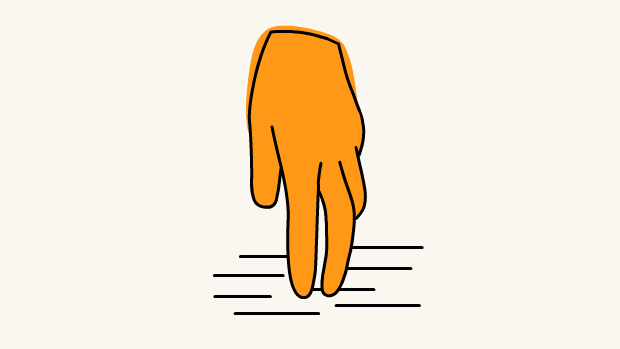
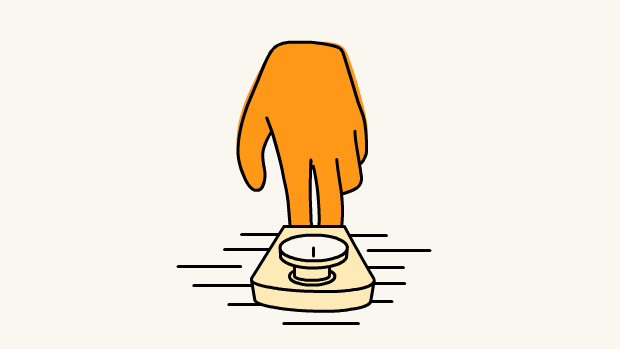
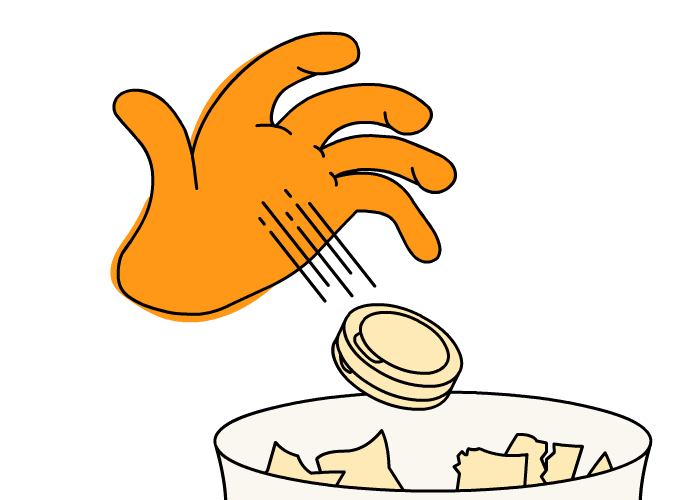
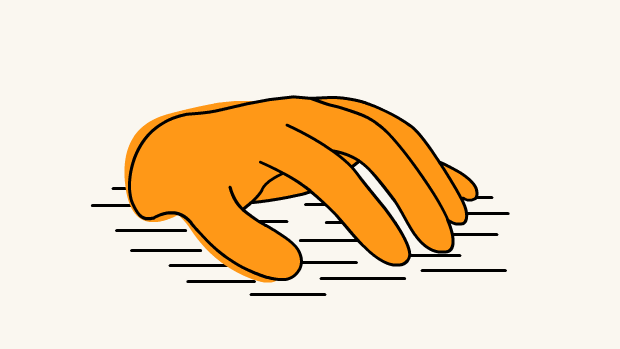

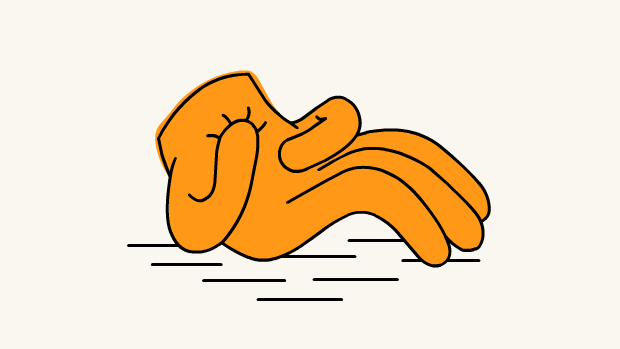
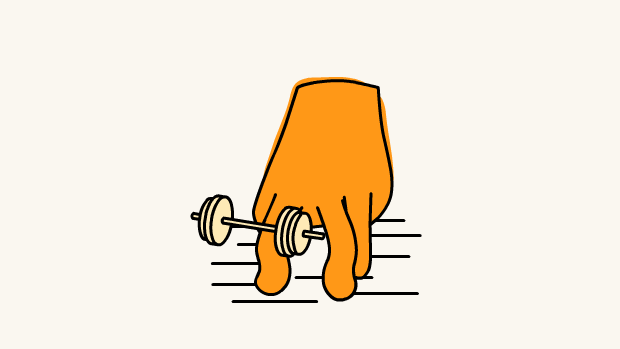
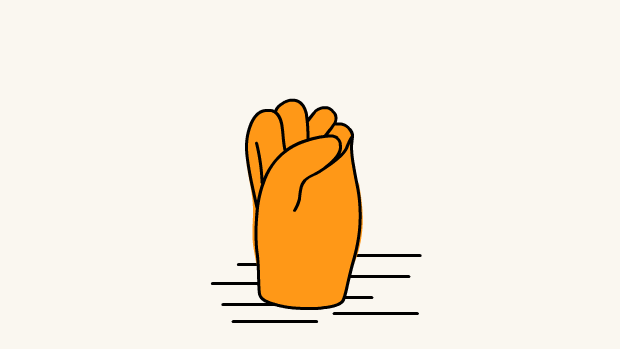
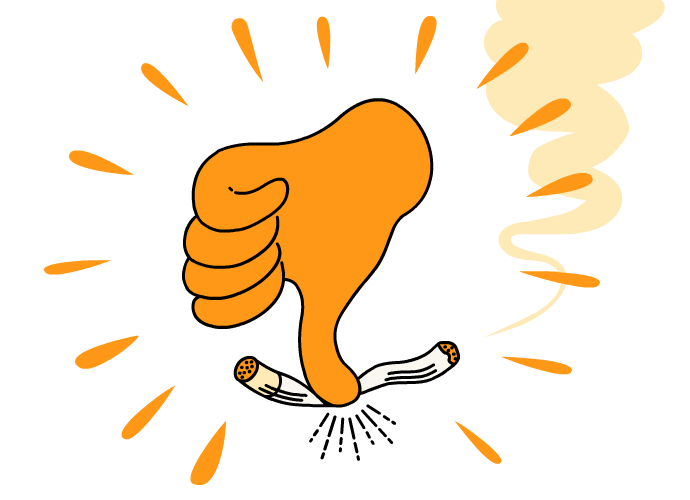
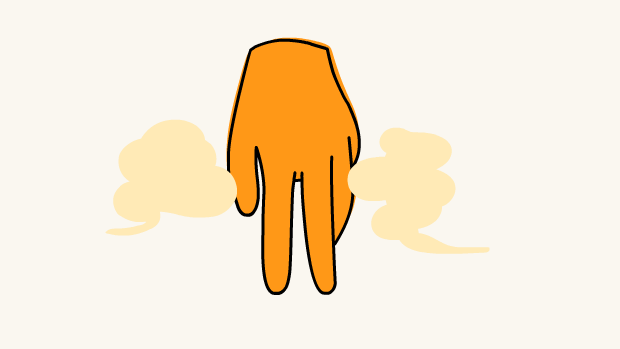

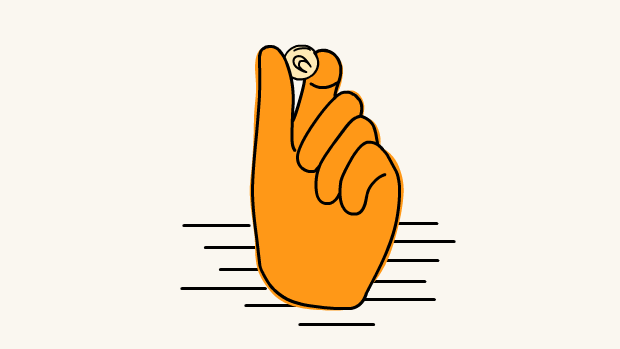

 Apohem
Apohem  Apotea
Apotea  Apotek hjärtat
Apotek hjärtat  Apoteket
Apoteket  Apoteksgruppen
Apoteksgruppen  Kronans apotek
Kronans apotek  Doz apotek
Doz apotek  Meds
Meds